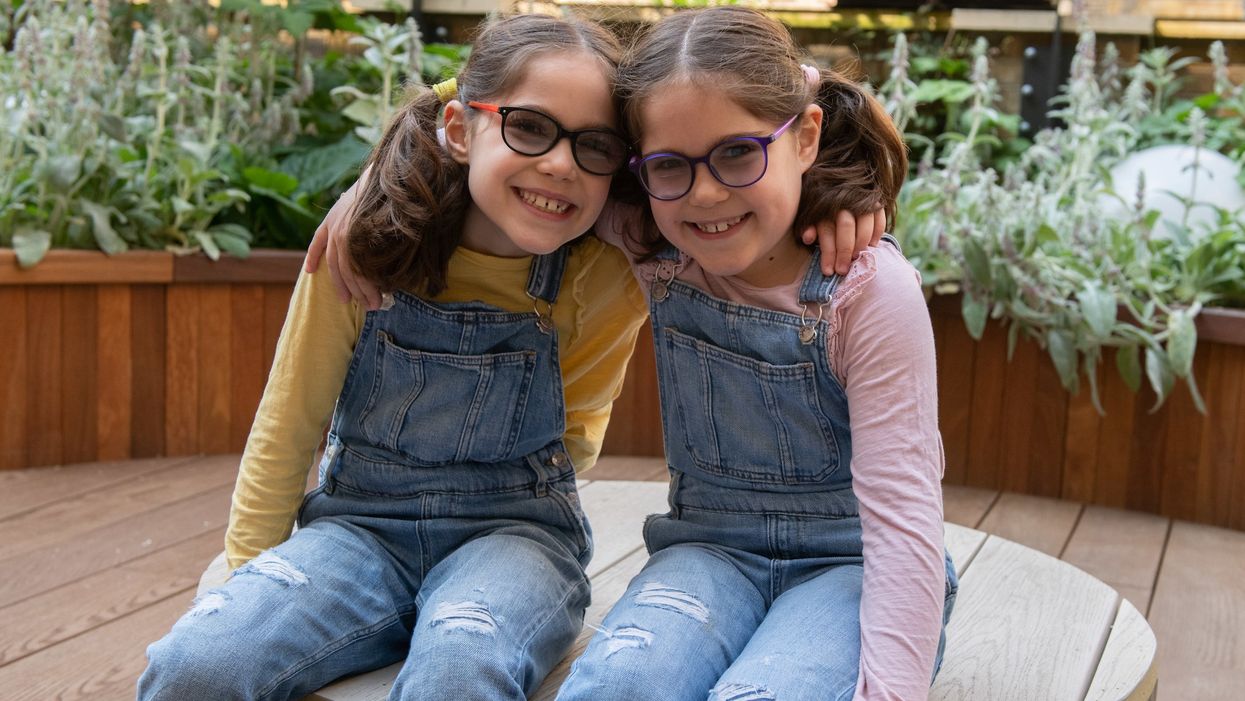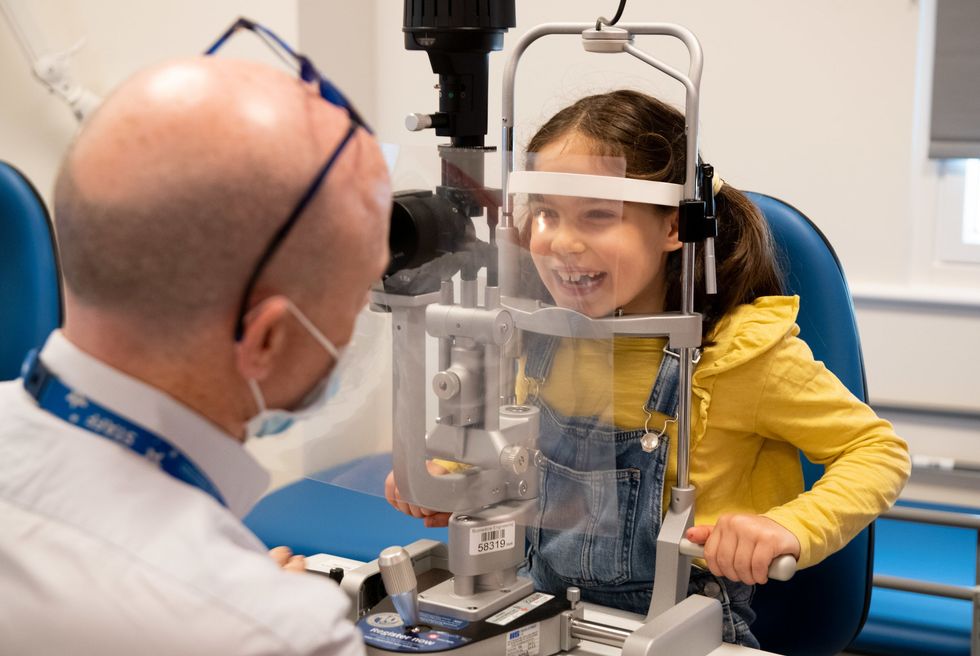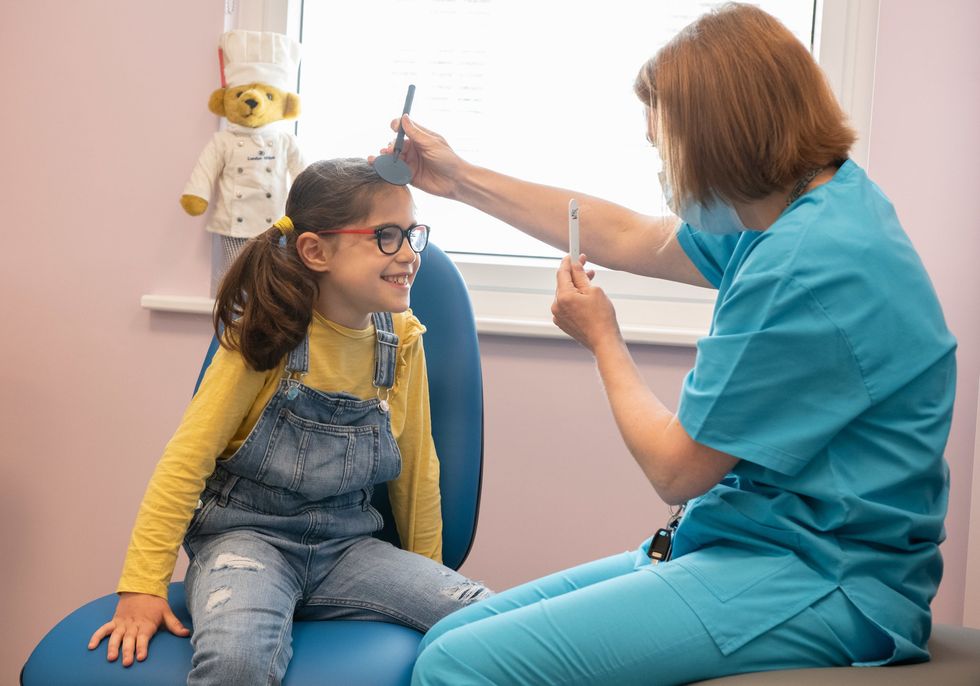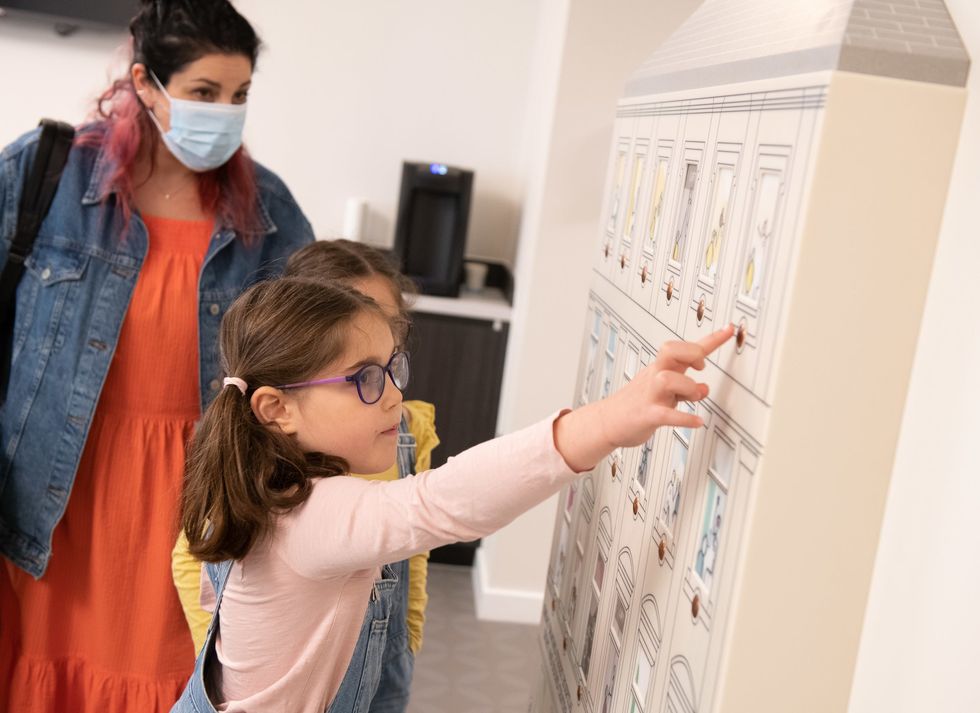
1. GOSH patients Iona and Beth in the sensory garden in the Sight and Sound Centre supported by Premier Inn
Twins born with cataracts in both eyes are now reading “anything they can get their hands on” thanks to specialist treatment at a world-renowned children’s hospital.
Seven-year-old twins Iona and Beth Farshi were only a few weeks old when it was discovered that they had problems with their sight.
Most people associate cataracts with the elderly, but children and babies can also be affected.
The condition occurs when the lens of the eye develops cloudy patches. It can inhibit sight and can affect activities like driving or reading.
The girl’s mother, Jude Farshi, first noticed something was wrong when Iona’s eyes seemed to flicker a lot when she was just six weeks old.
After a GP appointment and investigations at their local hospital, both twins were referred to the ophthalmology team at Great Ormond Street Hospital (Gosh) when they were just four months old.
“The hospital told me they wanted to send us straight to Gosh, and it was a shock,” Mrs Farshi said.
The 37-year-old charity worker added: “I didn’t know if they were telling me whether my kids could see, or not. They were so little, only four months old.”
Both girls were placed under monitoring but when Iona was 11 months old, Mrs Farshi and her 35-year-old husband Daniel Farshi, were told that her vision was starting to get worse and might not develop correctly in the future.
The family were fearful that Iona might lose her vision completely.
She had a series of operations on each eye to put in artificial lenses and remove her cataracts.
At one point the family, from Borehamwood in Hertfordshire, needed to travel to the hospital on London every couple of weeks.
Mrs Farshi added: “It was quite an unknown when we found out about the cataracts, we had questions like ‘would it just be surgery that they need? Would they be blue badge holders? Would they need a guide dog?’ I had no idea.
“The unknown was really challenging, but I think with any parenting there are always unknowns and the support the hospital offered was phenomenal.
“Now the twins are older, if they have a problem or a change in their vision they can tell me themselves, but at the time they were just babies, they couldn’t tell me. GOSH got us through the hardest bit.”
Beth still has her cataracts, but is being closely monitored by medics at the hospital.
The twins have regular check-ups, monitoring and treatment and were among the first patients to be treated at the hospital’s new Sight and Sound Centre supported by Premier Inn specially designed for children with sight conditions.
Now the girls are now “thriving” at school and are both avid readers and have achieved grade 3 in piano.
Mrs Farshi said the girls love imaginary play as well as drawing and playing tag.
“They’re thriving, they’re top of their class in everything,” she said.
“When they were first starting to read I always made sure they got large text books, but now they absolutely digest anything they can get their hands on, they love to read.
“They need their glasses, but that’s ok.
“They play piano to a very high standard. You wouldn’t know that they attend a world leading hospital for visual problems; they’re thriving, they’re happy.”
Bronwen Walters, head orthoptist at Gosh, said: “Both girls are doing brilliantly.
“They are coming up to eight years old so they are coming towards the end of their period of visual development, how they are now is how they will be in terms of long-term vision.
“Because we saw them both from such a young age, we were able to monitor them and intervene very, very quickly. As you can see, nothing is going to hold them back.”
















